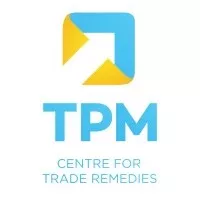- Through a spate of executive decisions, the USA has imposed additional tariffs on imports from Canada, Mexico and China. Further, the application of additional tariffs on imports of steel and aluminium articles has been extended.
- The tariffs have been imposed under the IEEPA, which empowers the President to declare a national emergency, and thereafter exercise discretionary and arbitrary authority.
- The tariffs imposed have been called into question as violative of the WTO agreements, with regard to non-discriminatory treatment to imports from different countries.
- While certain members previously challenged the additional tariffs before the WTO Dispute Settlement Body, the USA appealed the same before the Appellate Body. Since the Appellate Body is presently defunct, the appeals meant that the members would not be able to enforce the ruling.
- Imposition of tariffs on steel and aluminium products is likely to severely impact Indian exports In case India imposes retaliatory measures, such measures are speculated to likely impact the agriculture and technology sector in the USA.
The first three months of 2025 have seen significant upheaval in international trade due to a spate of executive decisions signed by the US President. The executive orders imposing additional tariffs on imports from Canada, Mexico and China and on imports of steel, aluminium, and other goods, have sparked a debate both domestically and internationally. The tariffs draw authority from the broad and unilateral powers granted to the President under the International Emergency Economic Powers Act (IEEPA), which allows for the declaration of a national emergency in response to perceived threats to national security, foreign policy, or the economy. However, the lack of a clear definition of what constitutes a 'national emergency' under this framework leaves room for broad and potentially arbitrary interpretations, which may be cause of concern for trade relations.
Moreover, the compatibility of these additional tariffs with the provisions of the WTO also remains a contentious issue. While the WTO allows its members the authority to restrict trade in goods to protect members' interest on grounds of national security; the use of this justification by the USA to impose tariffs on steel, aluminium, and other goods has already been challenged by several WTO members. Various WTO members have highlighted that such measures are a potentially trade protectionist in nature.. However, since the Appellate Body of WTO is presently defunct, the enforcement of any decision remains complicated.
Validity under the laws of USA
On 1st February 2025, the U.S. President signed three executive orders imposing 25% additional tariffs on imports from Canada and Mexico and a 10% additional tariff on imports from China. The Orders stated that the action was necessitated on grounds of national emergency; to hold Mexico, Canada and China accountable for illegal immigration and for stopping poisonous fentanyl and other drugs from flowing into the USA. After being suspended initially, the tariffs have finally come into force on 12th March 2025.
Thereafter, on 10th February 2025, U.S. President signed two proclamations. Pursuant to the proclamations, the 25% additional tariffs on imports of steel were extended to derivative products of steel. Further, the 10% additional tariffs on aluminium was increased to 25%, and such tariffs were extended to derivative products of aluminium. The proclamations also extended the application of the additional tariffs on steel and aluminium to all countries, which were previously exempted due to bilateral treaties or agreements. The USA and India had earlier reached an agreement to suspend additional tariffs imposed by both countries.
The U.S. President also unveiled the "Fair and Reciprocal Plan" on trade to restore fairness in trade relationships for USA and counter non-reciprocal trade agreements. A Section 232 investigation under the Trade Expansion Act, 1962 was also initiated to investigate the threat to national security and economic stability caused by imports of copper and imports of timber and lumber
The aforementioned proclamations and consequent orders have been issued under the aegis of the IEEPA. The scope of the authority spelled out in IEEPA is broad and allows the President to declare a national emergency under the National Emergencies Act (NEA) and thereafter, exercise discretionary authority under IEEPA.
However, it is to be seen as to what constitutes a 'national emergency'. The IEEPA and the NEA do not define and specify what a 'national emergency' entail. These vast and arbitrary powers permit the President to announce a national emergency, while also controlling how to manage numerous international economic activities. In the absence of a specified definition, the USA has justified the imposition of the recent tariff orders on Mexico, Canada and China by asserting that the imports of fentanyl and illegal immigration are a 'national emergency'.
Validity under the provisions of the World Trade Organization
One of the foundational principles of the WTO, of which the USA is a member, is non-discrimination amongst the WTO members and the prohibition of discriminatory trade practices. In particular, Article I of GATT provides for the most-favoured nation clause, that requires countries to treat all trading partners equally. The imposition of tariffs by the USA raises several concerns about their validity with respect to their obligations under GATT, particularly with regard to non-discriminatory treatment of goods from different countries.
The WTO allows for exceptions under certain circumstances, including threat to national security. However, the use of the national security exception as a reason for imposition of additional tariffs on steel and aluminium imports has already faced backlash and challenges at the WTO. Several member states of the WTO, including the European Union and China, challenged the additional tariffs on steel and aluminium imports before the WTO dispute settlement system, arguing that the national security exception was only an excuse for protectionist tariffs.
In 2019, the WTO Panel ruled that the additional tariffs imposed by the USA on steel and aluminium imports violated the international trade rules. The Panel considered that an 'emergency in international relations' under the provisions of the GATT refers to a situation of a certain gravity or severity and international tensions that are critical or serious nature in terms of their impact on the conduct of the international relations. However, the Panel did not find that the tariffs at issue were 'taken in time of war or other emergency in international relations' within the meaning of the provisions of the GATT.
Nevertheless, the decision of the WTO Panel did not compel the USA to remove the tariffs. On 26th January 2023, the USA notified the Dispute Settlement Body of its decision to appeal to the Appellate Body. However, the WTO Appellate Body is currently not functional, due to non-appointment of members since 2019, which have been blocked by the USA.
Pursuant to the imposition of additional tariffs on all imports from China and Canada, both the members have filed a complaint before the WTO. However, the fact is that even if a WTO Panel decides against such measures, the USA can appeal to the Appellate Body, being an appeal into the void and the complaining parties will not be able to enforce the ruling.
Impact on trade relations between India and USA
The USA has historically used tariffs to address trade imbalances, protect domestic industries, and assert economic strength. While these tariffs were politically motivated, they have led to disruptions in global supply chains, increased consumer prices and retaliatory tariffs. Retaliatory tariffs are tariffs that a country may impose in response to tariffs by another. For example, if the USA imposes tariffs on Indian steel, India might retaliate by taxing American products.
The additional tariffs on Indian exports of steel and aluminium, are likely to significantly affect the trade dynamics for India. In 2024-25, India exported $450 million worth steel and $984 million worth of aluminium to the USA. These sectors are vital for Indian export economy. Further, if India imposes retaliatory measures on major American exports such as agricultural exports, the effects would ripple across both economies. American industries like agriculture and technology are likely to be directly impacted by retaliatory tariffs. Products like almonds, apples and wine would likely face reduced demand in India, harming the exporters.
To sum up, the additional tariffs imposed by the USA present significant challenges for India. While the immediate economic impact may be manageable, the long-term effects will depend on India's ability to negotiate favourable trade terms, implement effective domestic policies, and diversify its international trade relationships. In the long term, the response by India will shape not only its relationship with the USA but also its position within the global trade order, testing the resilience of international trade law in the face of unilateral actions by major economic powers.
The content of this article is intended to provide a general guide to the subject matter. Specialist advice should be sought about your specific circumstances.



